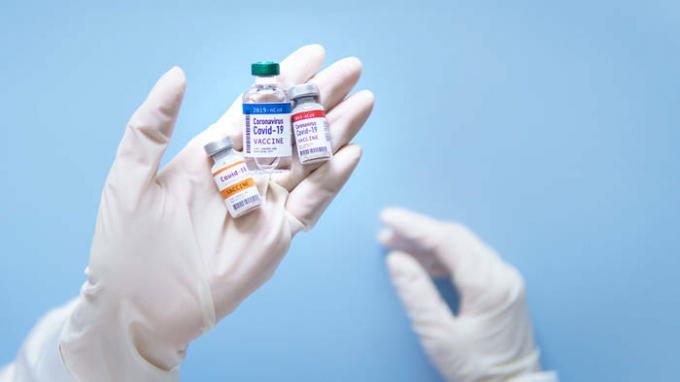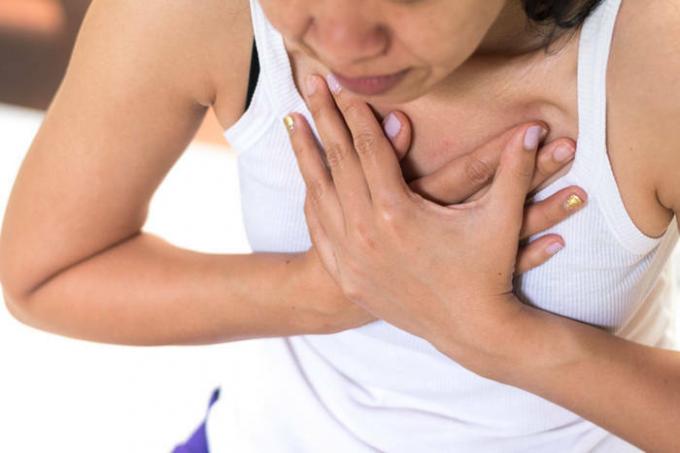Is it true that coronavirus vaccines cause myocarditis? What is the risk of developing this disease and what are its first symptoms? Doctor Komarovsky answers
The more people are vaccinated against coronavirus, the more information doctors have about the effectiveness of vaccines and their side effects. In the past few months, more and more information has appeared in the media that Pfizer and Moderna RNA vaccines cause complications such as myocarditis (inflammation of the heart muscle) in people. Because of this, many people refuse to vaccinate: they say, I have heart problems, so vaccination is contraindicated for me. Is it so? How high is the risk of developing myocarditis after vaccination? Yevhen Komarovsky, Candidate of Medical Sciences, Pediatrician, spoke about this live on the Ukraine 24 TV channel.
War among vaccine manufacturers

Covid vaccine makers vie for market leadership / istockphoto.com
Since the launch of the coronavirus vaccine campaign, Pfizer's BioNTech vaccine has been one of the most popular. Many people literally "hunted" for it, refusing to be vaccinated with other vaccines. However, in the spring of this year, information began to appear in the media with reference to various studies that vaccination Pfizer has a side effect: after the second dose, some people vaccinated develop myocarditis, or inflammation of the heart. muscles.
As a result, the popularity of the Pfizer vaccine fell, and people began to "switch" to the same RNA vaccine, but only from Moderna. Less than a few months later, this vaccine was "accused" of a similar side effect. According to the Reuters news agency, last week four European countries at once (Denmark, Sweden, Finland and Norway) suspended vaccination with Moderna among people under 30 years old. The reason is exactly the same: an increased risk of developing myocarditis after the second dose of the vaccine.
On this wave, everyone who was going to be vaccinated in the near future had a real panic. People are tolerating vaccinations in anticipation of new research results. However, Evgeny Komarovsky asks not to discount such an obvious factor as unhealthy competition.
“Most likely, this is a war between vaccine manufacturers. People need to take this into account ”,- emphasizes the medic.
Risks of developing myocarditis after vaccination

Heart problems are not a contraindication to vaccination / istockphoto.com
As for the side effect itself, here Komarovsky gives the following statistics: myocarditis after Pfizer vaccination occurs with a probability of once in a thousand doses. At the same time, the risk of developing this complication if a person becomes ill with coronavirus is 5 cases out of 100. The disease itself (myocarditis) most often goes away on its own, and only in rare cases ends with two days of hospitalization.
Canceling or postponing vaccination against this background is not only pointless, but also stupid, the doctor said. Indeed, today, both Pfizer and Moderna protect people from the severe course of the coronavirus.
“Yes, they do not guarantee that you will not get sick. But vaccination significantly reduces the risk of getting into intensive care ",- emphasizes Komarovsky.
Should you refuse vaccination for people who have heart problems? Evgeny Komarovsky is sure that this is not contraindication. "Heart patients" need to be afraid not of rare complications after vaccination, but of the fact that they can get coronavirus at any time, and here no one can predict the course of the disease.
“To date, there are practically no contraindications to the first dose of the vaccine,” the expert says. - There is a contraindication to the second dose: if after the first you have had a severe allergic reaction. This is provided that you went for vaccination healthy, without signs of SARS and without high fever. "
The first symptoms of myocarditis

Chest pain can be one of the symptoms of myocarditis / istockphoto.com
To reduce the risk of developing myocarditis after vaccination and seek medical attention in a timely manner, you need to know its symptoms. According to research, the highest risk of developing this disease is in the first two weeks after vaccination. The main signs of inflammation of the heart muscle include:
- pain in the heart (in the middle of the chest with a slight shift to the left);
- pain under the scapula, "radiating" to the arm;
- discomfort or heaviness behind the breastbone;
- heart palpitations (often intermittent);
- shortness of breath and atypical (fast) fatigue;
- excessive sweating;
- sometimes subfebrile body temperature (37-37.5).
If you have one or more similar symptoms after the coronavirus vaccination, you need to tell your family doctor about them. The diagnosis of myocarditis is based on a number of laboratory tests. Moreover, in 90% of cases, myocarditis goes away on its own within 1-2 months. Only sometimes the patient is prescribed anti-inflammatory drugs; in rare situations, inpatient treatment is needed.
You will also be interested to read:
Is a person infectious after vaccination against covid: the answer of Dr. Komarovsky
How to protect children from the Delta strain: advises Dr. Komarovsky



